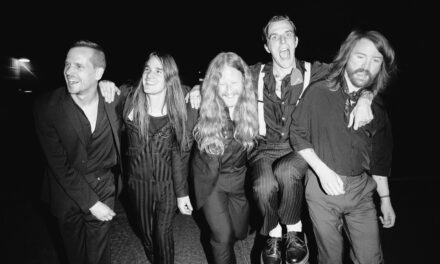Have you ever had the displeasure of listening to someone tell you a personal anecdote that just isn’t all that interesting because you weren’t the person living it? The events of the story aren’t even necessarily boring or unrelatable, but the person delivering the story just doesn’t know how to make their experience an engaging one. That’s the problem I had with Counting for Thunder, a story that I found very empathetic and relatable, but so dull in its delivery that I couldn’t bring myself to care for anyone or anything in the film.
Phillip Irwin Cooper writes, directs, produces, and stars—an ambitious start at auteurism that is unfortunately out of its depth—in a recreation of events from Phillip’s own life. As a struggling actor in California, Phillip is called back home to the Deep South to help care for his mother, who is suffering from inoperable lung cancer. During his time home, he reconnects with family and friends that he had long ago left behind to pursue his career, including a romantic relationship he ignites with childhood friend Joe (Peter Stebbings).
The central theme is a conflict between Phillip being true to himself and being beholden to his background and upbringing, which is very relatable as he attempts to bring New Age Californian medicine in to aid his mother when nothing else seems to be helping. The problem is that while that conflict is identifiable, it doesn’t really drive the film’s plotting, meaning that we are usually treated to characters having conversations about whatever happens to be on their mind rather than anything that highlights that central theme. This is a film that meanders in a distinctly Southern manner, but none of the characters are charming or distinct enough to make their conversations entertaining or meaningful.
This is further hampered by the film’s reliance on tired narrative tricks and some odd pacing. The film has narration that comes in and out without much consistency, and it rarely has anything to actually contribute beyond elaborating the symbolic significance of what we’re already seeing, a move that is intellectually insulting as it is tediously grating. The passage of time is also a bit ambiguously glossed over, as it becomes difficult to discern just how long Phillip has been back home or what his timetable is to resume his previous life. This leads to some bizarre moments, particularly in the flirtations between Phillip and Joe, where events jump forward what must have been at least a day or two, but seemingly no time has passed in the interim.
Because filmmaking is such an inherently collaborative process, it’s incredibly difficult to make a narrative fictionalization of autobiographical events, especially if one does not have experience writing or directing previously. I will say that Counting for Thunder is at least a good looking film, capturing the rustic beauty of the American South in vibrant color. But that does not conceal the fact that Phillip Irwin Cooper told a very dull version of what could have been an interesting story. Based in truth or not, there just isn’t enough of an arc to Phillip’s story to justify spending 100 minutes with it.













